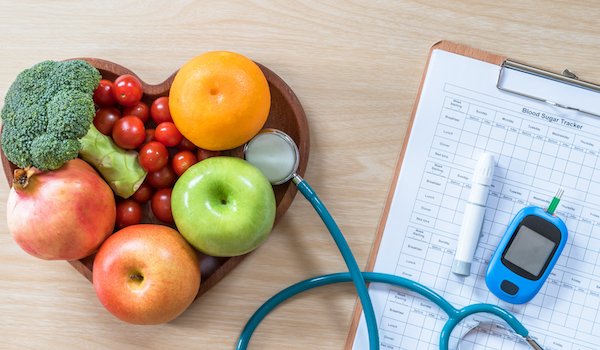Inside BENEO’s new pulse plant: pioneering sustainable protein from faba beans
A lot has been talked about diabetes worldwide and in India, the country with the second highest incidence of diabetes in the world. Diabetes is a disease characterised by high blood glucose concentrations resulting from defects in insulin secretion, insulin action or both.
India represents 49 percent of the world’s diabetes population, with 72 million cases in 2017. Diabetes type-2 is the most common. The risk factors of diabetes are overweight, sedentary lifestyle, obesity, physical stress & heredity.
Medical Nutrition therapy is integral to total Diabetes care & management. To integrate Medical Nutrition therapy effectively into the overall management of Diabetes requires a co-ordinated team effort, including Dieticians & Nutritionist. Medical Nutrition therapy is an individualized approach with effective nutrition self management education.
A statement issued by the American Diabetes Association (ADA) and the European Association for the Study of Diabetes (EASD) recently points to greater chances of ‘diabetes remission’ in Type 2 diabetic patients. Medical Nutrition therapy combined with active lifestyle can help in diabetes remission, a much positive ray of hope for millions of people living with the condition.
Carbohydrate:
The preferred terms in carbohydrate are starch, fibre (complex carbohydrate) & sugar (simple carbohydrate). Food that contains carbohydrates from whole cereals, fruits, vegetables & low fat milk are important components of a healthy diet. High carbohydrate diet is likely to elevate serum Triglyceride level. Hence Carbohydrate is to be maintained about 60 – 65% of total calories.
Low carbohydrates are recommended for Diabetes patient. Complex carbohydrates are better than simple carbohydrates
Protein:
A diet in high protein is good for the health of diabetes because it helps in tissue repair. Proteins do not raise blood sugar during the absorption which is a case in carbohydrate absorption and it does not raise calories as fats do.
Foods allowed: pulses, milk & milk product, Fish, chicken, Egg
Fats:
Low fat diet increases insulin binding and also reduces LDL & VLDL level and reduces the incidence of atherosclerosis which is common in Diabetes.
There is evidence from the general population that foods containing omega 3 fatty acids are beneficial, and two or three serving of fish per week are recommended. Flax seeds, walnut, canola oil, sardines,chia seeds are rich in omega 3 fatty acids.
Fibre:
Dietary fibre and complex carbohydrate benefit Type 1 & Type 2 diabetes with diet lower insulin requirements, increase peripheral tissue insulin sensitivity, decrease serum cholesterol and triglyceride values, and lower BP.
Whole cereals,Vegetables, fruit, Legumes, Methi seed (contain mucilaginous fibre) are excellent sources of fibre foods.
Vitamin & Minerals:
Vitamin supplements help to overcome oxidative stress and deficiency. Vitamin C (amla, orange,bell peppers,guava) & Vit E ( nuts , seeds & green leafy veg ) and in minerals, especially magnesium & zinc encouraged.
Diabetic patient needs calcium food (milk & milk products, green leafy, pulses). Vitamin D deficiency may contribute to impaired glucose tolerance hence special care is needed.
Glycemic Index:
High glycemic index forms of carbohydrate are foods that produce high concentrations of blood glucose and increased insulin demand and that higher risk of type 2 diabetes.
Low Glycemic index foods – 55 or less ( soy, beans, lentil, milk, grainy bread, oats )
Medium glycemic index- 56- 69 ( basmathi rice, whole meal bread)
High glycemic index – 70 or more ( potatoes, white rice, white bread)
Fluids:
When blood sugar is being elevated, the kidney tries to eliminate some glucose through increased urination, therefore necessitating increased risk of dehydration. Diabetes patient should be encouraged to drink a minimum of 8 – 10 glass of fluid per day.
Alcohol & Diabetes:
The effect of alcohol on blood glucose levels depends not only on the amount of alcohol ingested but also on its relationship to food intake. Alcohol contributes to calories and upset the Dietary regulation. It also blocks gluconeogensis.
Exercise:
Exercise plays an important role in facilitating and exerting good control over Diabetes. In addition to strengthening and toning up the muscles, it consumes more energy derived from blood glucose and sensitises the tissue to the action of insulin, which helps in keeping the blood glucose & Hba1c at a lower range.
A healthy and balanced diet sprinkled with a right physical exercise regimen and routine medication can keep diabetes under check. It also often leads to total remission of the condition auguring a new life and future for suffering patients.
Shabana Mohamed Sameer, Senior Dietician, Wockhardt Hospital

